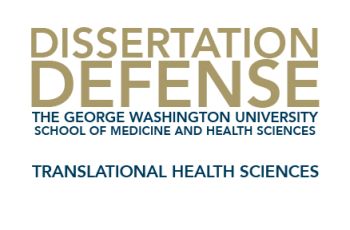
The dissertation defense is open and will be held virtually.
Participants are requested to RSVP to receive the link to the presentation.
The PhD in Translational Health Sciences Program is proud to announce the Dissertation Defense of:
PhD Candidate: Anthony J. Messina, MSHS, BSc, CCRP
Measuring What Matters to Patients:
A Multiple Methods Sequential Study of Disease Burden, Quality of Life, and the Alignment of Patient-Reported Outcome Measurements for High-Risk Myelodysplastic Syndrome and Acute Myelogenous Leukemia Patients
Dissertation Committee Chair: Mary Corcoran, Ph.D., OTR/L, FAOTA
June 10th 2025, 10:00 AM EST
This dissertation explores what matters most to patients living with high-risk myelodysplastic syndromes (MDS) and acute myeloid leukemia (AML), aggressive blood cancers associated with poor outcomes and significant impacts on quality of life. Using a patient-centered approach, the research aimed to understand and clearly define health-related quality of life (HRQoL) domains critical to these patients, then evaluate whether current measurement tools adequately capture these aspects.
Through detailed patient interviews and surveys, seven key domains emerged as essential for measuring meaningful patient outcomes: Physical Symptoms (such as fatigue and pain), Functional Independence (ability to maintain self-care and daily activities), Emotional Well-being (managing anxiety and stress), Social Well-being (avoiding isolation, maintaining support networks), Healthcare Experience and Treatment Satisfaction (confidence in and communication with care providers), Personal Values and Goals (aligning treatment with individual priorities), and Cognitive/Informational Needs (maintaining mental clarity and being informed).
The study found significant gaps in the most common patient-reported outcome measures (PROMs) used in clinical trials, particularly concerning patient autonomy, healthcare satisfaction, and treatment alignment with personal goals. These gaps indicate that existing tools may miss critical aspects that truly matter to patients.
The dissertation concludes by recommending improvements in existing PROMs or developing new, patient-informed measures to better capture the true patient experience. Such enhancements will ensure that clinical trials and healthcare decisions fully reflect what is genuinely important to those living with high-risk MDS and AML.